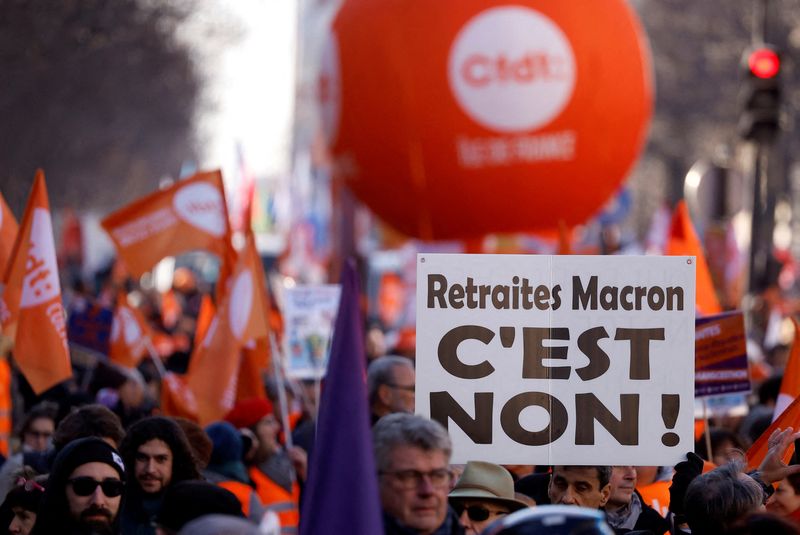PARIS (Reuters) - France's economy is on course for marginal growth in the first half of this year, the INSEE statistics agency said on Tuesday, adding that whether strikes over pension reforms have an impact on growth will depend on how long they last.
The euro zone's second-biggest economy is set to see quarter-on-quarter growth of 0.2% in both the first and second quarters, up from 0.1% growth in the final three months of last year, INSEE said in its outlook for the first half of 2023.
INSEE chief economist Julien Pouget said that meant the economy would need growth of about 0.4% in the two final quarters of 2023 to achieve the 1% annual growth that the government forecast in its budget.
In December INSEE had forecast the economy would grow 0.1% in the first quarter followed by 0.3% in the second quarter.
INSEE said in its latest update that the outlook also depended on how long a series of strikes over pension reforms lasted. On Tuesday France saw the third day of strike action in public transport, the energy sector and some schools since the government presented its pension reform plans on Jan. 10.
Pouget said that a series of large-scale strikes in 1995 over several weeks had cost the economy only 0.2 percentage points of growth and "at most" that much in 2019 during a series of strikes then, also over pension reform.
Turning to inflation, INSEE said that the annual rate was seen slowing from 6.0% in January to 5.0% by June as energy price pressure would ease after a 15% increase in regulated power prices in February.

Food prices would become a bigger driver of inflation pressure than energy prices, keeping underlying inflation, which excludes volatile prices like energy, high at or near 5.7% through the first half of 2023.
INSEE is a government agency but its forecasts are independent.